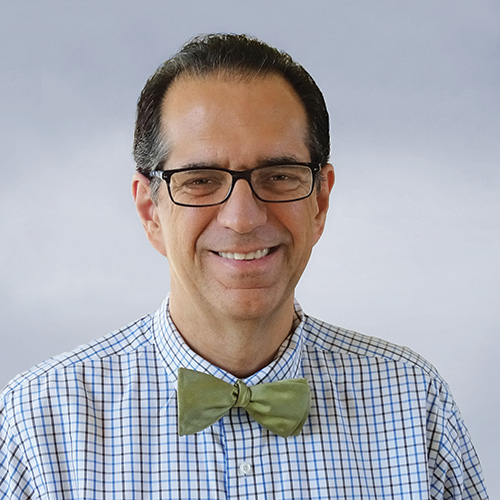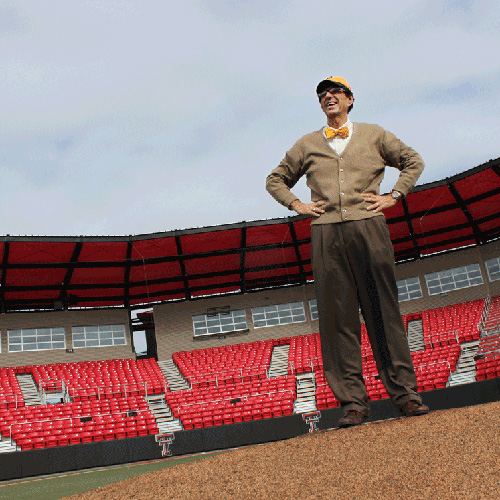Jorge Iber
M.A. in History, 1995; PhD in History, 1997
 Meet Jorge!
Meet Jorge!
I graduated with my PhD from the Department of History in 1997. I began working at Texas Tech University in the Fall of that same year. I published my dissertation as a manuscript with Texas A&M Press in 2000 and was promoted to Associate Professor in 2002. I then became Chair of the Department of History at Tech in 2004 and with subsequent publications earned promotion to Full Professor in 2006. In 2007 I moved into another administrative post, Associate Dean of the College of Arts and Sciences, Student Division. I remained there until July 2023, when I was appointed Interim Vice President for Campus Access and Engagement, with the Interim designation removed a year later.
During my time at Tech, I have written, co-authored, edited, and co-edited a total of 17 books, over 50+ book reviews, edited several issues of academic journals, 35 journal and encyclopedia articles, and presented 25 papers at various conferences. I currently anticipate the publication of at least one more journal article, another book with the University of Wyoming Press, and finally, am working on a final book project on Latinos/Latina athletes for Ohio State University Press.
Q: What led you to the University of Utah and to studying History?
A: My arrival at the U was by pure chance. My undergraduate degree was in Business Administration, though I had always had an interest in History. When I decided to apply for a PhD program in History, I applied at various universities and was accepted at all. Most were in smaller communities (such as Manhattan, Kansas). Given that I had grown up in Miami, and my wife in the shadow of New York City, we decided that Salt Lake City made the most sense for us as “big city folks.”
When I arrived at the U, I soon meet Bob Goldberg and Dean May and quickly understood that, but sheer luck, I had found the right place to pursue my education. Both individuals, along with Ed Davies and Larry Gerlach became great mentors who helped me to earn both my MA and Doctorate and to complete a dissertation that was in such good shape that when Texas A&M reviewed it, there was only minimal more work necessary to turn it into a manuscript. I will always be grateful and praise these scholars for their mentorship.
Q: What impact has your education from the College of Humanities had on your life?
A: Well. It made the wonderful career that I have achieved at TTU possible. I learned not only the nuts and bolts of research and writing but also took to heart the motto that Dr. Goldberg kept reminding me of, that is to “Be a shark. You get into this business to publish.” I think that, except for one or two colleagues in my home department, that I have published more than anyone else in the history of that unit.
Additionally, and I have to share this for the benefit of current students, there were a few of what I would refer to as “snobs” in the Department of History at Tech when I arrived. They made it quite clear to me that “Utah was not an important institution, and that I would likely not earn tenure and promotion.” Well, not only did I surpass their academic output, but I also quickly moved up the ranks to become their Chair.
Frankly, it was the role models that I worked with at the U that encouraged me to understand that once you get your doctorate it is what you do at your place of employment that counts, not necessarily the trumped-up pedigree of where you got your degree. Not surprisingly, this is a bit of information I have passed along to Tech students. Our motto at Tech is “From Here, It’s Possible.” I firmly believe that the same holds true for my alma mater.
 Q: Tell us about your recent publications and what you enjoy about being an author
Q: Tell us about your recent publications and what you enjoy about being an author
A: I always loved to write and felt that I would become an author. I think that the principal thing I learned at the U was to never stop working and continue to hone my craft through publications. Given that I have been an administrator now for most of my time at Texas Tech, many folks wonder why (and how) I continue to publish as much as I do. It all stems back to Dr. Goldberg’s mentoring. I love to research and write, and it is a wonderful element of my overall workday.
The book I mention in the previous question from the U of Wyoming is on a Mexican American family from Cheyenne that has marshalled participating in sport (wrestling) over three generations to dramatically change their social and economic standing. When the first generation of this clan arrived in Wyoming, they worked in the “usual” tasks assigned to Mexicans and Mexican Americans. When one member of the second generation managed to get a wrestling scholarship to attend college he changed the dynamics and expectations of the family. Nearly all of the males in this clan have wrestled and used sport as a way to attend college.
I have written an article along similar lines on the life story of one of the most legendary Mexican American basketball players in the state of Texas. Again, a similar trajectory. No one in his family had graduated high school, much less gone to college. This individual not only led his South Texas (Rio Grande Valley) team to the state final four in 1972, he then went on to lead his local university (then called Pan American, now University of Texas-Rio Grande Valley) to great success in the NCAA.
Q: What advice would you give to current students?
A: I think that the points that I make toward the end of question #3 are the best advice I can give to current students at the U (as I do with students at Tech). Don’t ever sell yourself short, even when someone tells you that you will not accomplish “much” given that you are “just” a Ute or a Red Raider.
Q: What advice would you give to graduating students as they start to explore a career and life after college?
A: To never give up and to always stay hungry. Learn what you can from each individual class and each individual job and channel that into your next course or employment.
Q: What is the best professional advice you’ve ever received?
A: I would go back to an element what Dr. Goldberg told me: whatever you do, do it the best you can. I believe that it was Woody Allen who said that “80 percent of life is just showing up.” Well, that may be true, but if everyone else is “mostly showing up,” how do you differentiate yourself in whatever employment area you pursue?
Q: Outside of work, what are your hobbies or interests?
A: I continue to read voraciously about History and other topics. I also, not surprisingly, love sports. I am a big fan of the Red Raiders and the Utes. Now that the two schools are in the Big XII, I have been asked by many on campus as to my allegiance when the two schools meet in athletic competition. While I love the Red Raiders, I must root for “my” Utes in only that instance. I am looking forward to seeing the football team here in Lubbock in the Fall of 2026.
